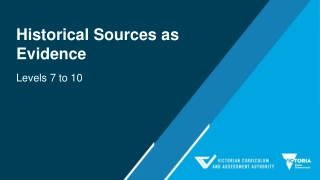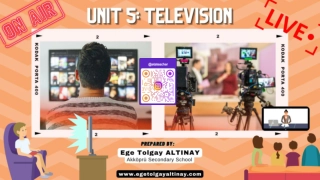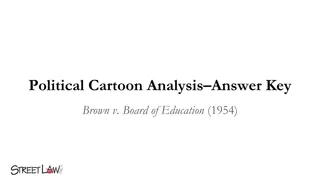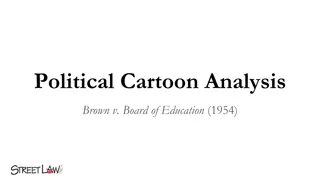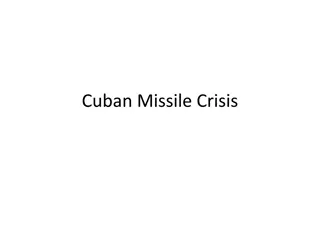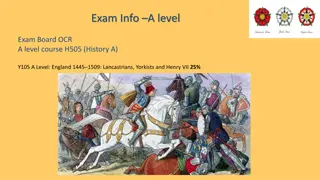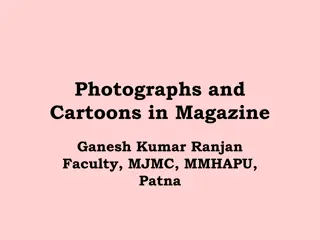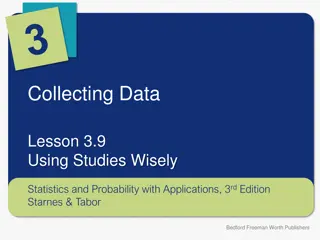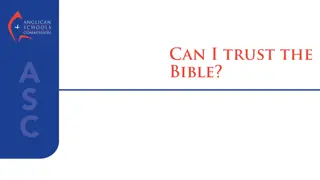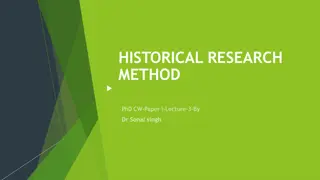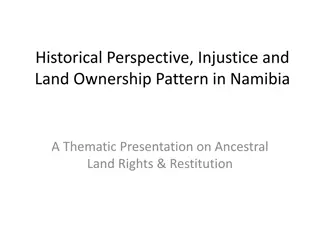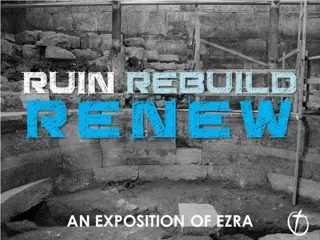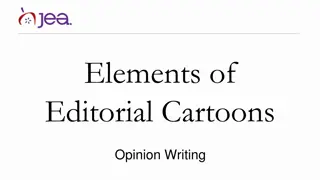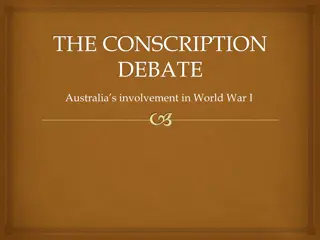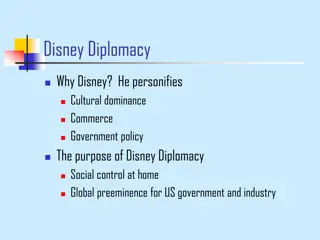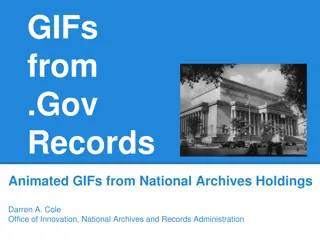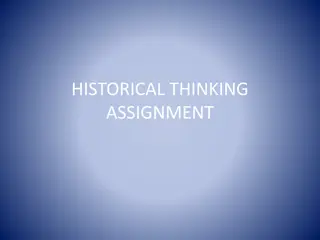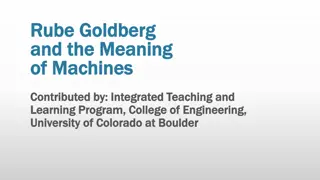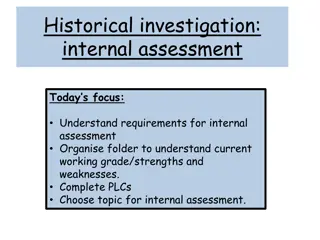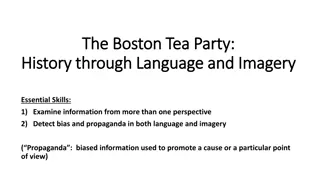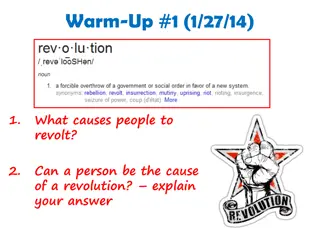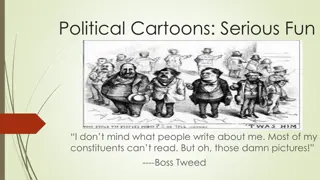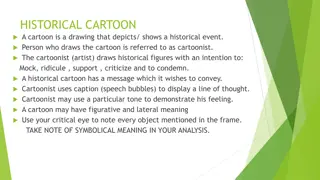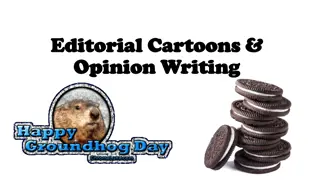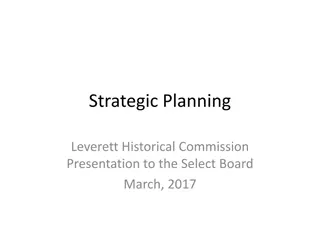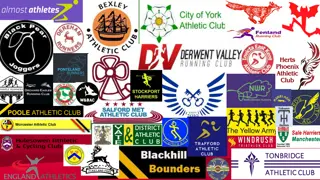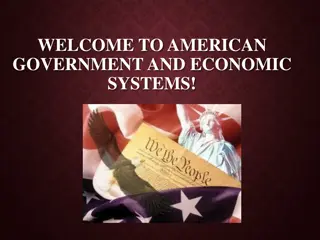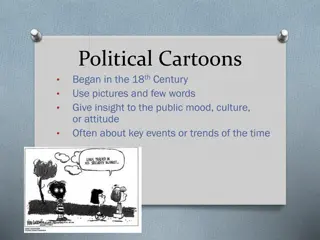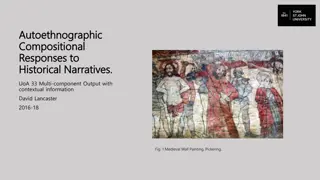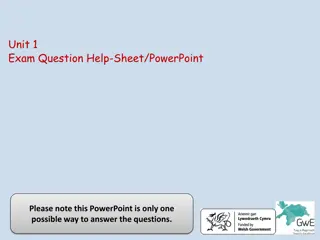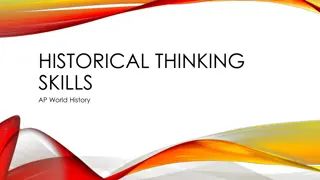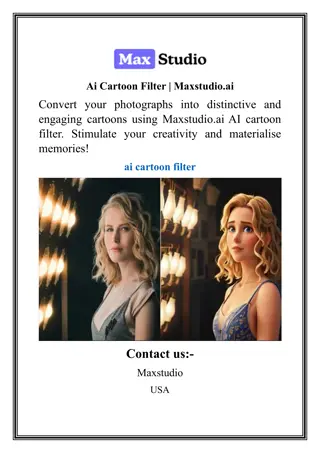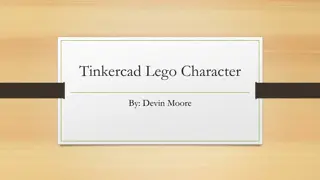Historical Sources as Evidence
Explore the importance of historical sources as evidence in the Victorian Curriculum History context, focusing on how students analyze, evaluate, and utilize sources to create historical explanations and arguments. Discover the significance of primary and secondary sources, perspectives of historica
2 views • 46 slides
Engaging Lesson on Rhymes with Two Little Blackbirds
In this interactive presentation, teacher Shakil Hosen from Bhatkundu Government Primary School introduces a fun lesson about Two Little Blackbirds. The lesson includes listening to rhymes, enjoying cartoons, and engaging in various activities to enhance learning outcomes. Students participate in gr
0 views • 15 slides
Exploring the World of TV Programmes: A Comprehensive Guide
Dive into the diverse world of TV programmes with this detailed guide covering a wide range of genres, from cartoons and action movies to cooking shows and reality series. Discover essential words related to television, learn about actors, directors, and audience engagement, and explore important co
1 views • 31 slides
CUBAN REVOLUTION
Explore the impact of the Cuban Revolution through a series of political cartoons, focusing on the visuals, message, and persuasive techniques used to convey opinions on key events such as Fidel Castro passing the presidency to his brother Raul, depiction of Cuban embargo, and the Cuban Missile Cris
2 views • 14 slides
Analysis of Political Cartoons on Brown v. Board of Education (1954)
The analysis examines two political cartoons related to the Brown v. Board of Education case in 1954. The first cartoon symbolizes victory against segregation, portraying the Supreme Court's support for desegregation. In contrast, the second cartoon criticizes the forced progress of desegregation, a
2 views • 10 slides
Political Cartoon Analysis
Explore and analyze a series of political cartoons related to the Brown v. Board of Education case from 1954. Examine the visuals, symbols, messages, and potential political bias in each cartoon. Consider the differing perspectives and reactions that different groups might have towards the messages
0 views • 6 slides
Challenges and Solutions in Implementing Historical Competencies in Teaching
Explore the complexities and obstacles faced in implementing historical competencies in teaching, as discussed by Jens Aage Poulsen, a senior lecturer and researcher at HistoryLab, University College Lillebaelt, Denmark. The content delves into competence-based curriculum, core historical competenci
0 views • 7 slides
The Cuban Missile Crisis in Historical Context
Explore various aspects of the Cuban Missile Crisis, including the political cartoons, Kennedy's response, USA's reactions to the Cuban Revolution, USSR's involvement in Cuba, and the outcomes of the crisis. Learn about the key players, their decisions, and the impact on Cuba, USA, and the USSR.
2 views • 37 slides
Wars of the Roses (1445-1461): Source Analysis on the Downfall of Henry VI
This content delves into the Wars of the Roses period (1445-1461) in England, focusing on the outbreak of conflicts, political turmoil, and the downfall of Henry VI. It includes an inquiry topic, sample paper question, and a detailed analysis of a historical source (Source A) by Jack Cade regarding
0 views • 16 slides
The Significance of Photographs and Cartoons in Print Media
In contemporary society, newspapers and magazines heavily rely on photographs and cartoons to inform, educate, and entertain their readers. Photojournalism enhances storytelling by communicating through images, while cartoons offer a humorous approach to discussing serious issues. Both mediums play
0 views • 8 slides
Scope of Inference in Statistical Studies
Statistical studies require careful consideration of the scope of inference to draw valid conclusions. Researchers need to determine if the study design allows generalization to the population or establishes cause and effect relationships. For example, a study on the effects of cartoons on children'
1 views • 15 slides
Examining the Reliability of Historical Texts: From The Bible to Socrates
Investigating the unparalleled popularity of the Bible, the historical significance of Christianity, the reliability of documents related to Socrates, and the critical analysis of potential mistakes in historical texts through comparisons and archaeological findings.
2 views • 13 slides
Historical Research Methods
Historical research is a systematic approach to investigating past events, developments, and experiences. It involves critical examination of evidence, interpretation of sources, and tracing of historical trends to gain insights into social changes. Various definitions by scholars like Kerlinger, Wh
1 views • 21 slides
Historical Research: Methods, Purposes, and Aims
Historical research involves investigating past events systematically to provide a dynamic explanation, interpretation, and understanding of the past. It aims to uncover unknown aspects, answer unexplored questions, and link past happenings to the present to enrich human culture and encourage interd
0 views • 20 slides
Namibia's Ancestral Land Rights: Historical Injustice and Restitution
Explore the historical context of land ownership in Namibia, focusing on ancestral land rights, colonization processes, and the impact on indigenous populations. Learn about the notion of ancestral land, who should be considered indigenous, and the colonial modes of land acquisition. Uncover the str
1 views • 33 slides
Overview of Ezra: Historical Background and Key Details
Ezra and Nehemiah, two significant books written as one scroll in Hebrew, cover a historical period from 538-445 BC in Israel's history. The authorship of Ezra is traditionally attributed to both Ezra and Nehemiah, possibly also linked to the Chronicles. This period coincides with other biblical boo
0 views • 31 slides
The Elements of Editorial Cartoons in Opinion Writing
Discover the significance of editorial cartoons in conveying opinions through visual storytelling. Uncover why editorial cartoons are effective, whether they need to be humorous, and the key elements such as analogy, irony, symbolism, and labels. Dive into examples illustrating how these elements ar
0 views • 9 slides
The Conscription Debate in Australia during World War I
Australia's involvement in World War I and the contentious issue of conscription are explored through two failed referendums. The impact of public opinion, recruitment drives, and the consequences of the war on the decision-making process are highlighted. The evocative posters, poems, and cartoons f
0 views • 8 slides
Disney Diplomacy: Cultural Influence and Political Objectives
Disney's role in diplomacy, particularly in South America, reveals a complex interplay between cultural dominance, commercial interests, and government policies. The Good Neighbors Office aimed to counter German propaganda through positive American portrayal, but overlooked cultural differences and
4 views • 8 slides
National Archives Holdings Through Animated GIFs
Dive into a fascinating collection of animated GIFs sourced from National Archives holdings, showcasing historical events, holidays, and Marine flag-raising over Iwo Jima in 1945. Discover the engaging world of government records brought to life through compelling visuals like motion pictures, photo
0 views • 19 slides
Key Historical Events and Perspectives
Explore significant historical moments such as the Kennedy Assassination, the First Moon Landing, and the FLQ Crisis, examining the impact of these events on society and the world. Discover the importance of historical thinking skills in analyzing causes, consequences, continuity, and change, as wel
1 views • 11 slides
Rube Goldberg Machines in Education
Simple and compound machines aim to simplify work, but Rube Goldberg machines challenge this notion by making tasks unnecessarily complex. Through the study of Rube Goldberg's cartoons, students delve into critical thinking about machine significance. Learning objectives include evaluating the socie
0 views • 24 slides
Requirements for Historical Investigation Internal Assessment
Understand the 25% weightage internal assessment comprising 3 sections for a historical investigation. Focus on source evaluation, investigation, and reflection within a 2,200-word limit. Choose a historical topic, analyze primary and secondary sources, and consider causation, consequence, continuit
0 views • 18 slides
Analyzing Bias and Propaganda in Boston Tea Party History
Explore the Boston Tea Party through language and imagery, learning to examine information from multiple perspectives and detect bias and propaganda. Engage with visual materials, such as political cartoons, and texts like the 1773 Massachusetts Gazette article to determine if they were created by p
0 views • 10 slides
French Revolution Warm-Up Series
This series of warm-up activities explores various aspects of the French Revolution, such as causes of revolt, key events, changes during different phases, and the roles of significant figures like Napoleon. Students are prompted to analyze political cartoons, identify estate characteristics, sequen
0 views • 9 slides
Political Cartoons: A Satirical Art Form
Political cartoons use humor and satire to convey messages, often poking fun at politicians and societal issues. They employ various techniques like caricature, symbols, metaphors, irony, sarcasm, and stereotypes to make powerful statements. These cartoons can influence public opinion and spark disc
0 views • 8 slides
Historical Context in Skills Development Discourses
Exploring the evolution of apprenticeship and skills development through historical sociology, historical futures, modes of justification, and complexity concepts. Emphasizing the importance of nuanced historical understanding to navigate contemporary challenges in South Africa's skills development
0 views • 29 slides
Art of Historical Cartoons
Delve into the world of historical cartoons and learn how cartoonists use satire, symbolism, and caricature to convey messages about significant events and figures. Understand the contextualization, intention, and symbolism behind these artworks through examples and analysis, revealing the hidden la
0 views • 9 slides
Editorial Cartoons and Opinion Writing
Editorial cartoons and opinion writing are powerful mediums used to express opinions on various topics. Editorial cartoons convey opinions through visual imagery and minimal text, while opinion writing presents the author's stance on timely issues. When crafting an opinion piece, it is essential to
0 views • 7 slides
Leverett Historical Commission Strategic Planning Presentation Overview
Leverett Historical Commission identifies issues with ad hoc requests, lack of clarity on historical property significance, and inadequate maintenance plans. A strategic plan is needed to define assets, determine significance, create guidelines, prioritize restoration efforts, and establish funding
0 views • 9 slides
The Big England Athletics Quiz Extravaganza - General Knowledge and Cartoons
Test your knowledge with questions ranging from tongue twisters to classic cartoon characters. See how well you fare in this fun and engaging quiz extravaganza!
0 views • 71 slides
American Government and Economic Systems
Explore the nuances of the American government and economic systems through activities, discussions, and assessments. Delve into the differences between the House and Senate, analyze political cartoons, and ponder essential questions about the functioning and relevance of the U.S. government. Gain i
1 views • 22 slides
Political Cartoons: Symbols, Metaphors, and Irony
Political cartoons are historical snapshots that use visual symbols, metaphors, and irony to reflect public sentiments and critique current events. Through visual distortion, stereotypes, and caricature, these cartoons offer insights into culture and attitudes, aiming to provoke thoughtful discourse
0 views • 18 slides
Wilson's 14 Points and the Treaty of Versailles in History Class
Explore Wilson's Fourteen Points, analyze the Treaty of Versailles, and evaluate the Senate's perspective in this engaging history lesson. Dive into political cartoons, essential skills, and group activities to enhance understanding of key historical concepts.
0 views • 7 slides
Historical Narratives through Music and Art
This submission presents two original compositions that delve into historical narratives through a unique blend of music and visual art. The compositions aim to reinterpret stories from the past, creating innovative structures and forms. By intertwining various perspectives and utilizing cinematic t
0 views • 8 slides
Historical Source Analysis Exam Questions Overview
The provided content outlines exam questions related to historical sources, guiding students on analyzing, evaluating, and interpreting information from different sources. The questions cover a range of topics such as learning from sources, assessing accuracy, understanding significance, and making
0 views • 12 slides
Developing Historical Thinking Skills in AP World History
AP History classes aim to cultivate apprentice historians by fostering historical thinking skills (HTS). These skills include Chronological Reasoning, Comparison and Contextualization, Crafting Historical Arguments, and Historical Interpretation. Each skill set equips students with the ability to an
0 views • 15 slides
Quantitative Research Framework for Historical Disciplines
Scholarly communities in historical disciplines are combining quantitative and qualitative methods to study phenomena that change over time. The proposed general methodological reflection aims to enhance research in historical linguistics through quantitatively driven models and claims. Quantitative
0 views • 18 slides
Ai Cartoon Filter Maxstudio
Convert your photographs into distinctive and engaging cartoons using Maxstudio.ai AI cartoon filter. Stimulate your creativity and materialise memories!\n\n\/\/ \/cartoon-filter
4 views • 1 slides
Popular Characters in the World of Entertainment
Explore the iconic characters like Steve from Minecraft, Batman from DC, and Captain America from Marvel. Each character has its own unique presence in various forms of media, including cartoons, video games, and movie series. Dive into the world of these beloved figures and their significant impact
0 views • 4 slides
